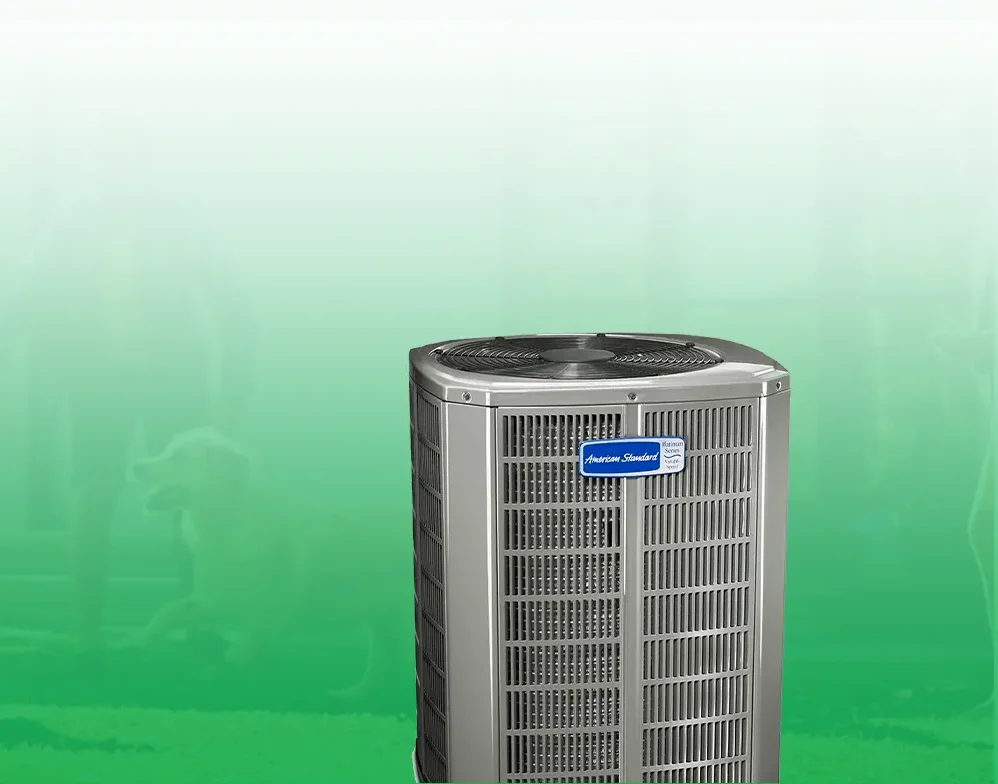We often think of HVAC systems as mere tools to regulate temperature—things that keep us warm in the winter and cool in the summer. But what if I told you that these systems go beyond just providing physical comfort?
The temperature of our environment plays a significant role in our mental health, productivity, and overall well-being. When temperature control becomes an afterthought, we miss out on the crucial psychological benefits that come from maintaining a consistent, comfortable climate.
How Does Temperature Control Affect Mental Health and Well-Being?
We often underestimate the impact temperature can have on our mental and emotional states. Whether it’s sweltering heat in the summer or bone-chilling cold in the winter, extreme temperatures can cause discomfort, stress, and even negatively impact our mental health. The link between temperature and psychological well-being is real—and here’s why:
1. Thermal Comfort and Mood
Thermal comfort is a psychological state where the surrounding temperature feels neither too hot nor too cold. When the body feels comfortable, it helps maintain emotional balance. On the flip side, uncomfortable temperatures—whether too hot or too cold—can trigger irritability, anxiety, and even aggression.
- Too Hot: Excessive heat can make people feel sluggish, irritable, and anxious. It can also interfere with sleep patterns, leaving individuals feeling fatigued and stressed.
- Too Cold: On the other hand, when the temperature dips too low, it can make us feel uncomfortable, tense, and even anxious. Cold temperatures often lead to physical discomfort, which can translate into feelings of unease or agitation.
2. Stress and Cortisol Levels
Studies have shown that being in uncomfortable temperatures increases stress levels, which in turn raises the production of cortisol, the stress hormone. High cortisol levels can interfere with mental clarity, focus, and even emotional regulation.
- Heat and Stress: In high-temperature environments, our bodies work harder to regulate heat, which can lead to physical stress. This impacts our emotional state, leading to irritability or frustration.
- Cold and Stress: Similarly, when exposed to cold temperatures, the body can go into a “fight or flight” response, producing stress hormones and leading to anxiety.
3. Sleep Quality and Temperature
Temperature also plays a vital role in our sleep cycles. Proper sleep is critical to mental health, and an uncomfortable temperature can prevent us from getting the restful sleep we need. A room that’s too hot or too cold can interfere with our circadian rhythm, affecting the quality of our sleep.
- Ideal Temperature: The ideal sleep temperature is generally between 60-67°F (15-19°C), which allows our bodies to cool down naturally and enter deep sleep stages.
- Disruptions: If the environment is too warm, our bodies struggle to cool down, while cold temperatures prevent the body from relaxing fully. This disruption can lead to fragmented sleep, which in turn affects mood, cognitive function, and overall mental well-being.
Why Is 24/7 HVAC Essential For Maintaining a Comfortable Living Environment?
Now that we know how temperature influences mental health, it’s clear why having a reliable HVAC system is essential. But why does a 24/7 HVAC system specifically matter for maintaining comfort?
1. Consistency is Key
Humans thrive on routine, and that includes the environment we live in. Just as we have circadian rhythms that dictate sleep, we also have an innate need for stable, consistent conditions in our surroundings. Sudden fluctuations in temperature—whether it’s an unexpected heatwave or an unanticipated cold front—can disrupt our sense of comfort and elevate stress levels.
- Predictability: A 24/7 HVAC system ensures that the temperature remains stable throughout the day and night, creating an environment that’s predictable and comfortable.
- Comfort in Any Season: Whether it’s the scorching summer heat or the freezing winter cold, having a constant HVAC system means you won’t be caught off guard by drastic temperature changes. This helps maintain a comfortable living environment, reducing stress.
2. Health and Comfort
Inconsistent temperatures can negatively affect health, particularly for those with respiratory issues, the elderly, or children. For example, a sudden heatwave can cause dehydration, heatstroke, or exhaustion. Similarly, cold temperatures can cause the body to work harder to maintain warmth, leading to potential cold-related illnesses.
- Temperature Regulation: A 24/7 HVAC system ensures that your home remains at a consistent, comfortable temperature, reducing the risks associated with extreme weather fluctuations.
- Humidity Control: Many modern HVAC systems also regulate humidity, preventing overly dry air in winter or damp, muggy air in summer, which can exacerbate respiratory issues.
3. Energy Efficiency
Many modern HVAC systems are designed with energy efficiency in mind. With features like programmable thermostats, zoning systems, and variable-speed fans, these systems maintain comfort while reducing energy usage.
- Smart Thermostats: Programmable thermostats allow homeowners to set temperature schedules, ensuring that their home is always comfortable without wasting energy when no one is around.
- Cost-Effective: With proper insulation and an energy-efficient HVAC system, you can enjoy consistent comfort without the high energy bills that come with constantly adjusting temperature settings.
What are The Psychological Benefits of Consistent Temperature Regulation?
When temperature control is consistent and reliable, it doesn’t just benefit physical comfort—it positively impacts mental health as well. Let’s take a look at some of the psychological benefits of a properly regulated environment.
1. Enhanced Well-Being
A well-regulated environment reduces stress and improves mood, leading to better overall well-being. With a stable temperature, the body can focus on relaxation and enjoyment instead of constantly adjusting to uncomfortable environmental conditions.
- Relaxation: A consistent, comfortable temperature fosters relaxation and helps people unwind more easily after a long day.
- Positive Emotions: Comfortable temperatures contribute to an overall sense of calm, promoting positive emotions and reducing negative ones like frustration, anger, or stress.
2. Improved Mental Clarity
Temperature regulation affects our ability to think clearly and perform tasks effectively. When we’re too hot or too cold, it’s harder to concentrate, and mental fog sets in. By maintaining a comfortable, consistent temperature, we create an environment that allows for clear thinking and effective decision-making.
- Focus and Clarity: A steady temperature keeps us alert and focused, reducing the mental distractions that come with discomfort.
- Calm Productivity: When we’re not distracted by temperature fluctuations, we can complete tasks more efficiently and with greater focus, which directly impacts our productivity.
3. Stress Reduction
Temperature is one of the first environmental factors we can control, and regulating it can have a direct impact on our stress levels. A comfortable space allows the mind to feel at ease, reducing external stressors that can affect our mental state.
- Physical Comfort Leads to Mental Comfort: When the body feels physically at ease, the mind follows suit. The reduction in physical discomfort directly correlates to a reduction in psychological stress.
How Does An HVAC System Influence Productivity and Focus in The Workplace?
The influence of temperature control goes beyond the home and into the workplace. Whether it’s a corporate office, a home office, or a creative studio, the environment in which we work plays a significant role in our ability to focus, be productive, and remain engaged with our tasks.
1. Optimal Work Environment
Studies have shown that the optimal temperature for productivity lies between 68-72°F (20-22°C). Within this temperature range, employees tend to be more productive, happier, and healthier.
- Comfort Equals Focus: A comfortable workspace helps employees stay focused on their tasks, leading to higher output and more effective problem-solving.
- Reduced Distractions: When the temperature is regulated, workers don’t need to adjust their clothing, open or close windows, or fan themselves to stay comfortable. This reduction in physical distractions leads to better focus.
2. Reducing Fatigue
Temperature extremes can lead to fatigue and burnout. For example, an overheated workspace can leave employees feeling drained, while a freezing office can make it hard for workers to stay alert. An HVAC system that maintains a consistent and comfortable temperature allows workers to stay energized throughout the day.
- Preventing Mental Fatigue: Maintaining an optimal temperature helps prevent mental fatigue, allowing employees to stay engaged and productive for longer periods.
- Promoting Well-being: Consistent comfort helps workers feel better overall, both physically and mentally, contributing to a positive work environment and higher morale.
3. Healthier Work Environment
In workplaces with extreme temperatures, employees may be more prone to sickness or discomfort. For instance, working in a cold office can cause aches and pains, while hot environments can contribute to dehydration and heat exhaustion. A controlled temperature helps to minimize these risks, leading to healthier employees.
- Reduced Illness: By maintaining a stable and comfortable climate, HVAC systems help reduce the risks associated with extreme temperatures, ensuring employees stay healthy and can work at their best.
Temperature control is far more than just a convenience—it’s a psychological necessity. Whether it’s enhancing mental health, improving productivity, or reducing stress, HVAC systems play a critical role in creating a comfortable and effective environment for both home and workplace settings.
With 24/7 temperature regulation, you’re not just ensuring physical comfort—you’re actively improving your mental well-being and enhancing your quality of life. So, the next time you adjust your thermostat, remember that you’re not just controlling the temperature; you’re controlling your mood, productivity, and overall health.
Stay Comfortable Year-Round with Horne Heating and Air Conditioning Inc.
At Horne Heating and Air Conditioning Inc., we believe that consistent temperature control is more than just about comfort—it’s about improving your overall well-being. Whether you need a new HVAC system, maintenance, or a repair, our expert team is here to ensure your home or business stays comfortable in every season.
Don’t wait for the temperature to become a problem—contact us today and let us provide you with efficient, reliable, and tailored HVAC solutions that keep you comfortable all year long. Experience the benefits of expert temperature control, and elevate your space to new levels of comfort!
















